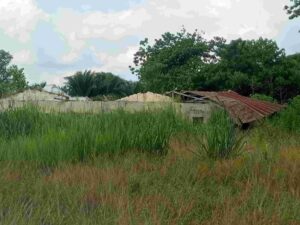CLAIM: According to a video circulating on social media, Sheikh Muhammad Bin Uthman, a Kano Islamic scholar, asserts that the Adolescent Girls Initiative for Learning and Empowerment (AGILE) is targeted at influencing female students in certain states of Nigeria’s Northern to defy religious and cultural norms.
FULL-TEXT: In the viral video, Bin Uthman claims that the project seeks to discourage religious and cultural practices among girls aged 10 to 19, such as preventing a father from instructing his daughter to wear a Hijab without her consent.
The Sheikh criticised the initiative, labeling it as “irresponsible,” and suggested that it’s part of a Western conspiracy targeting the Northern region, by taking advantage of poverty to advance their hidden agendas.
While highlighting AGILE’s efforts in school reconstruction, financial empowerment, and scholarships for girls, the scholar alleged that it led girls to defy their parents due to the empowerment components including monetary gifts to participating girls as a stipend.
VERIFICATION: PRNigeria visited the AGILE’s website where none of the components of the programme could influence or discourages religious and cultural practices among girls as claimed by the cleric.
Clarifying on the matter, the State Coordinator of the Kano State Chapter of Civil Society Action Coalition on Education for All (CSACEFA), Dr Auwal Halilu, acknowledged that Sheikh Muhammad Bin Uthman has recognised the good efforts put in place in AGILE in terms of school reconstruction and provision of books for students in various schools across the implementing states.
Halilu nevertheless stated that the project does not influence or discourage girls from adhering to religious and cultural norms, adding that implementing agents in designated areas are mostly Muslims.
“If you look at the communication activities about behavior change and social norms in Kano, for instance, most of the people talking to these girls are Islamic scholars and decent women who would serve as role models to them and the communication is aimed at encouraging girls to go to school, not only to enroll but complete their education.
“On the hijab issue, the project has distributed lots of hijabs to Maiduguri, Kano, and other states. Therefore, it is not a matter of influencing these young girls not wear hijab.”
According to him, the purpose of the AGILE project is to bridge the educational gap between boys and girls in the northern region, considering the number of out-of-school students among girls in Kano and other implementing states, and they teach them life skills, especially digital and entrepreneurship skills to bridge the poverty gap that hinders girls from pursuing quality education.
Similarly, an implementing organisation, Girl Child Concerns, Maiduguri, has said that the project is implemented alongside religious authorities, explaining that even the AGILE safe space handbook was collectively reviewed by critical stakeholders that comprise traditional and religious leaders as well as government and development partners who are mostly practicing Muslims.
PRNigeria observes that the project aims to empower young girls through education, vocational skills, and life skills, intending to create role models and champions within their communities.
Every participating state has devised its own Safe Space Handbook. These handbooks were created locally and underwent comprehensive review by various stakeholders, including religious and traditional leaders.
After reviewing the Safe Space handbook for Borno, it was found to consist of eight modules which cover topics such as self-realisation, self-agency, responsible adolescence, communication, climate change and climate action, leadership and mentorship, and other related areas.
CONCLUSION: Based on the information gathered from various sources, the Adolescent Girls Initiative for Learning and Empowerment (AGILE) focuses on bridging the educational gender gap in Northern Nigeria.
PRNigeria, therefore concludes that there is no SUFFICIENT EVIDENCE to prove that the AGILE project is aimed at influencing female students in certain states of Nigeria’s Northern region to defy religious and cultural norms.
By PRNigeria



